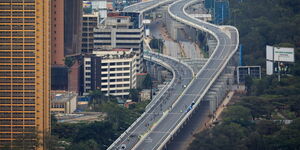Car dealers in Kenya are facing tough times after the sale of new cars for the year 2020 hit a three year low.
A report by Kenya Motor Industry Association released on January 20, 2021, revealed that new car sales in the country dropped by 14.6 per cent. Almost all dealers registered low sales including the largest players in Kenya's vehicle industry.
KMI stated that the low sales resulted from the adversities of the Covid-19 pandemic on the world's economy which have seen many sectors of the economy grounded and thousands of Kenyans left with an income.
According to KMI, 11,086 vehicles were sold the whole of 2020 by the entire industry. This was a drop from 12,981 sold in the year 2019.
Global car dealers such as German manufacturer Volkswagen, saw their momentum in Kenya and East Africa slowed by the pandemic. The carmaker had set up a car assembly point in EA, targetting the region's long-term economic growth. Kenya's strategic location also played a key role in the establishment of the plant.
The data by KMI however indicates that the sale of cars increased towards the end of the year rallying at 1,287 cars sold in December alone.
Car dealers in the country argued that the restrictions imposed on cargo transporters and Public Service Providers reduced the need for operators to expand their fleets.
According to the report, Toyota sales declined the most by 24.1 per cent to 2,684 cars sold compared to 5,538 sold in 2019. Simba Corp's orders contracted by 19.2 per cent to 1,691 units from 2,094 units across its Mitsubishi, Renault and Maruti pickups.
Isuzu sales dropped by 15.8 per cent to 4,340 units from 5,158 units. The dealer is among manufacturers that targetted the East African Market after it acquired a 57.7 per cent stake in General Motors.
Isuzu CEO Rita Kavashe, however, told Nation that the company had experienced an increase in sales starting the late half of 2020.
"The easing of intercounty travel restrictions in July has seen a gradual economic recovery driven by small and medium enterprises (SMEs) who have supported our business. We have seen heightened economic activities, especially in the construction and agricultural sectors," Kavashe stated.
"While Kenyans have adopted conservative spending to meet their domestic needs, there is now a growing appetite for investments driven by emerging opportunities," she added.
The relative decline in sales resulted in a number of dealers cutting back on the workforce as a contingency measure, cushioning themselves against the pandemic.












